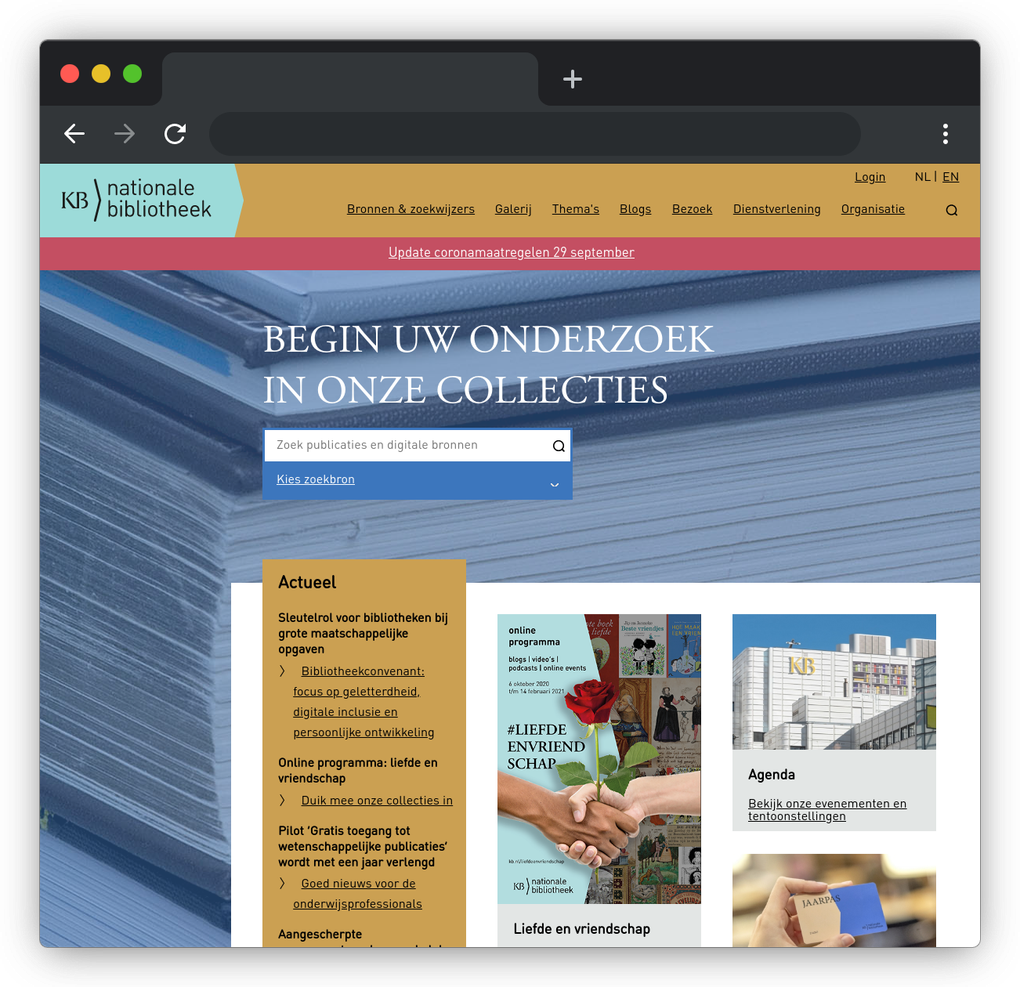
If you think of full depots of stored books, newspapers and periodicals for posterity at the National Library of the Netherlands, you are only half well off at the Royal Library in The Hague. Of course there are the physical archives, 110 kilometres long. But the KB is moving with the times. It digitizes, and how! In a period of three years, it makes a broad selection of Dutch historical newspapers available digitally from 1618 to 1995 inclusive…
… A part of it (all newspapers up to 1939) is freely accessible on the internet. A total of 8 million pages become available with tens of millions of articles, which are fully searchable. This makes the web service, kranten.kb.nl, the largest online newspaper database in the world. An ambitious project to which Ibuildings made a significant contribution in 2009 and 2010.
Millions of items quickly accessible
Gert-Jan Dorlas, Head of Information Technology, explains why the project is so ambitious. “With millions of articles that need to be accessible - we’re talking about 250 terabytes of storage capacity - we’re dealing with three essential starting points. First, there is the enormous amount of data we need to handle. Next, the system has to perform in such a way that that information is displayed on the screen within seconds using search criteria. Thirdly, we want hundreds of visitors to be able to consult their search results within those few seconds at the same time. This means that there is a lot of technology at the back of the system. The front is actually the tip of the iceberg. But it has to be extremely accessible, no matter how complex the rest of the system is. Ibuildings plays an essential role in this, because it has extensive experience in unlocking large amounts of information on the internet to large numbers of visitors”.
Up-to-date PHP knowledge and experience
Edwin Klijn, Project Manager, supplemental: “Ibuildings added PHP knowledge to the project that we didn’t have ourselves. They are simply good and, above all, up-to-date with the latest knowledge. In addition, they bring in a wealth of experience gained from complex projects with other clients. They mainly helped us with technical knowledge and creative solutions to make the web service as clear as possible. An example is the zoom function. Ibuildings has adapted and linked two standard services for this purpose: the Image Viewer and our own ‘highlighter’, which we use to indicate search results in colour on the page. Technically, this is a link between the image of the newspaper or article, the text obtained through OCR (Optical Character Recognition), the coordinate file of the words and the keyword. The link allows you to see the search result as a highlight in the article or in the context of the newspaper, you can zoom in and out, move and rotate. The implementation was complex, but the result is very clear. A great piece of work, which Ibuildings helped us with very well”.
Skilled and customer-focused
Gert-Jan explains why the Royal Library chose Ibuildings. “Years ago we made a strategic choice to develop everything we present on the internet in PHP. Then we automatically ended up at Ibuildings. We like to work with healthy, reliable companies, who get into the business with us and feel like KB-ers. We have already done several projects with Ibuildings and that’s fine. Their programmers work side-by-side with our own developers, partly in-house, partly from their own offices. They know their trade, are pragmatic and think in solutions. Moreover, they do more than just programming: they think along with their client. That gives Ibuildings added value.
Continue
“During the project, we had an increasing need to professionalize the PHP knowledge of our own developers. Ibuildings thought along with us about a training programme, which they are now carrying out. They did the same for the software library, which we are now setting up. From now on, we will put modules that we have already developed into a library, so that we can reuse them. That saves time and money. For example, for the next project in the pipeline: Dutch Prints Online, a sequel to the newspaper database, but for books”, concludes Gert-jan.

